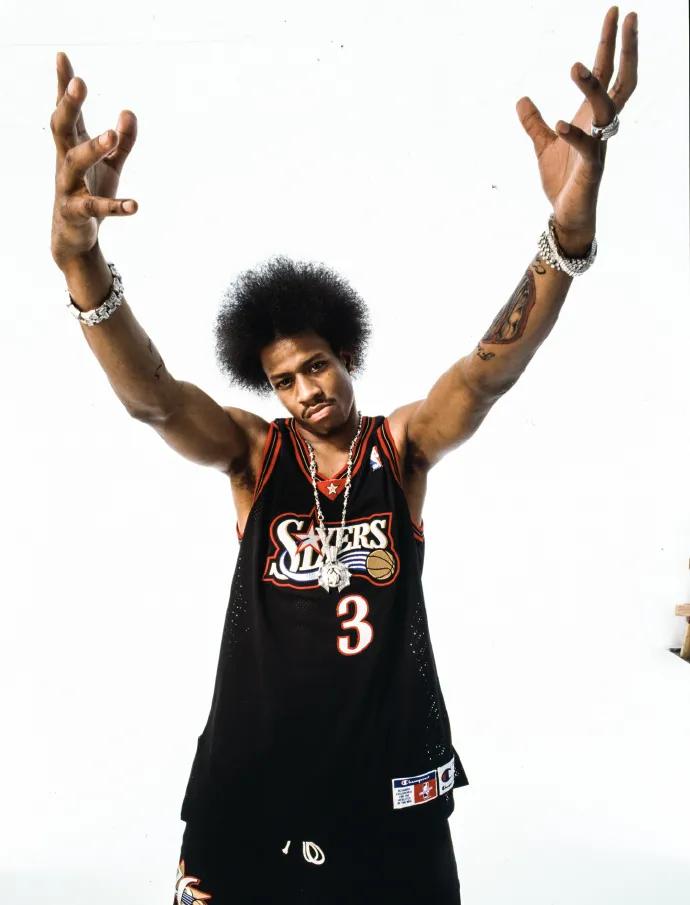As for what kind of player Iverson is, we will not elaborate, as the leader of the 96 golden generation, and the only 183 player in the history of the NBA, Iverson's talent can be imagined.
In 1984, Iverson's mother took 9-year-old Iverson to the basketball court to practice. At first, Iverson didn't like to play basketball, and it wasn't until watching other football players play basketball that Iverson began to play basketball.

In 1990, Iverson entered high school and immediately became the absolute core of the school's football team. Without playing basketball, Iverson's achievements in american football would probably not be low in the NBA.
In 1991, Iverson led the varsity football team to the semifinals of the American League Under-17. In '92, he led the rugby team to the state championship and was elected MVP.
Three days later, in Iverson's first basketball league game, Iverson slashed 37 points to win the opponent. That season, Iverson averaged 31.6 points, 8.7 rebounds and 9.2 assists per game.
The following year, Iverson fought on both sides and led both varsity teams to state championships. Iverson's inconceivability swept the United States, and countless elite schools sent offers for Iverson.
But it was also the year that Iverson and a few friends clashed with several whites at the bowling alley, which quickly developed into a brawl of more than 50 people, many of whom were seriously injured.
After his arrest, Iverson was sentenced to 5 years in prison by the court as the leader of the provocation. After repeated appeals, Iverson was released on parole after only 4 months in prison.
At this time, no basketball school is willing to consider Iverson. His mother approached the Georgetown university manager at the time, hoping that Georgetown would give Iverson a chance before Iverson could enter Georgetown.
In his second year in Georgetown, Iverson averaged 25 points, 4.7 assists and 3.8 rebounds per game and shot 48 percent from the field. Due to family financial reasons, Iverson could only participate in the draft early and give up his college career.
At that time, Iverson was regarded as the best small guard after the Assassin Thomas, and it was widely believed before the draft that Iverson would enter the top five, and some people thought that the 76ers would definitely choose him.
His draft report reads: At 183, he has an arm span of 196. His speed was too fast, 10.3 seconds in 100 meters, almost at the level of a professional athlete, and dribbled at a speed of 5.7 seconds.
Iverson is not a point guard in the traditional sense, he is more similar to the Assassin Thomas,between scoring and assisting players, and his scoring ability is very good.
His speed and athleticism are amazing, and he ranks second in the United States with an average of 3.4 steals per game in college, and has a great deterrent on the defensive end.
On the offensive end, Iverson is very good at handling the ball, as is his ability to break through to the basket. Shooting, while not his forte, continues to grow, and over time he will become an All-Star.
Of course, Iverson is not without weaknesses, and his shooting is not very stable, which may put his game in a difficult situation. In addition to this, Iverson is a defender who scores first and passes second.
In the end, the 76ers boldly selected Iverson in the title position, making the latter the shortest champion in history. In the early days, Iverson was on excellent numbers, but the 76ers had a mediocre record.
It wasn't until Larry Brown arrived that both the 76ers and Iverson ushered in their own golden age.